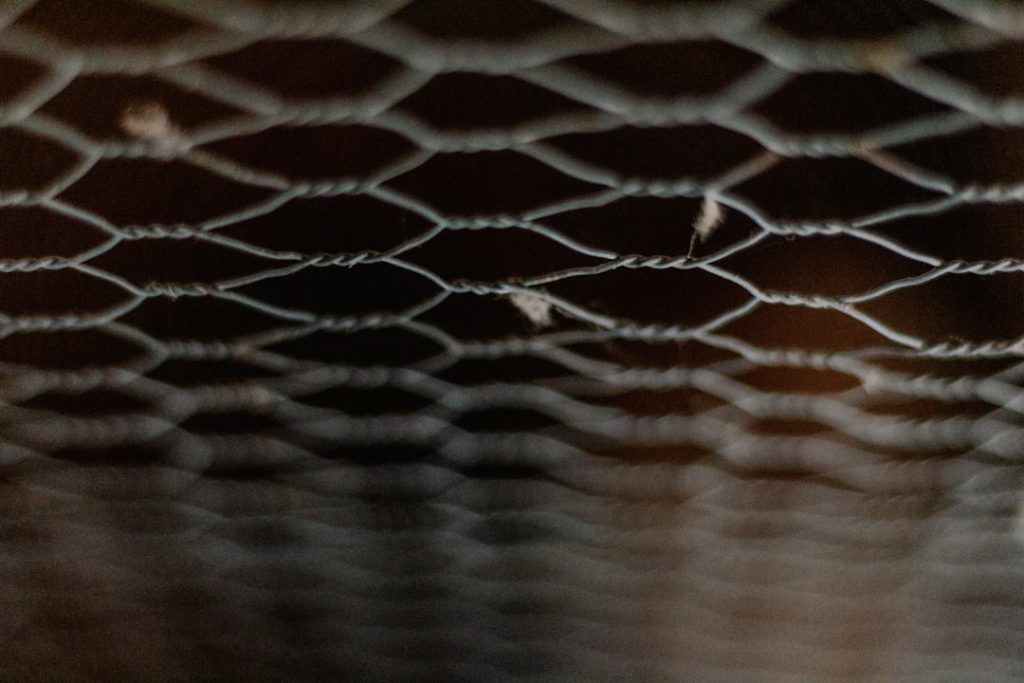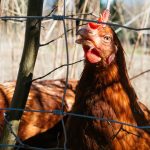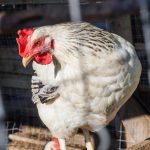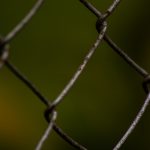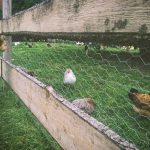Chickens are naturally curious and inquisitive animals with an instinctual tendency to peck and scratch the ground in search of food. This behavior is crucial for their survival in the wild, enabling them to forage for insects, seeds, and other small organisms. In domestic settings, however, this natural behavior can become problematic, particularly when chickens start pecking and scratching at flower beds and gardens.
Within a flock, chickens establish a social hierarchy, and pecking behavior can be a means of asserting dominance or alleviating stress. Chickens may also engage in pecking behavior due to boredom or frustration, especially if they lack sufficient space or enrichment activities. Understanding these natural behaviors is essential for effectively addressing and preventing chickens from damaging flower beds.
Chickens are known to be attracted to certain colors and textures, which can influence their behavior around flower beds. Brightly colored flowers or mulch can be particularly enticing, leading chickens to peck and scratch at these areas. By comprehending these behavioral tendencies, it is possible to implement strategies that deter chickens from damaging flower beds without causing harm to the birds.
Table of Contents
- 1 Creating Physical Barriers
- 2 Using Natural Deterrents
- 3 Implementing Visual Deterrents
- 4 Providing Alternative Areas for Pecking and Scratching
- 5 Regularly Monitoring and Maintaining the Flower Bed
- 6 Seeking Professional Help if Necessary
- 7 FAQs
- 7.1 What are some effective ways to keep chickens out of my flower bed?
- 7.2 Are there any plants that can help repel chickens from my flower bed?
- 7.3 Is it safe to use chicken wire or other physical barriers to keep chickens out of my flower bed?
- 7.4 Can I train my chickens to stay out of my flower bed?
- 7.5 Are there any potential risks to using natural deterrents to keep chickens out of my flower bed?
Key Takeaways
- Chickens are naturally curious and will peck and scratch at flower beds
- Physical barriers such as fences or netting can prevent chickens from accessing flower beds
- Natural deterrents like citrus peels or coffee grounds can discourage chickens from entering flower beds
- Visual deterrents such as scarecrows or reflective objects can also deter chickens
- Providing alternative areas for chickens to peck and scratch can redirect their behavior away from flower beds
- Regular monitoring and maintenance of the flower bed can help prevent chicken damage
- Professional help may be necessary if chicken behavior continues to be a problem
Creating Physical Barriers
Physical Barriers: A Simple yet Effective Solution
One effective way to safeguard your flower beds from chickens is to create physical barriers that prevent them from accessing the area. This can be achieved by installing fencing or netting around the perimeter of the flower bed. The fencing should be tall enough to prevent the chickens from jumping over it, and the gaps in the netting should be small enough to prevent them from squeezing through.
Raised Garden Beds: A Visually Appealing Solution
Another option is to use raised garden beds, which elevate the flowers and plants out of the chickens’ reach. This not only protects the flower bed from pecking and scratching but also provides a visually appealing way to showcase your flowers. Additionally, using decorative rocks or gravel around the base of the flower bed can create a physical barrier that deters chickens from getting too close.
Maintenance is Key: Regularly Inspect and Reinforce Barriers
It’s essential to regularly inspect the physical barriers to ensure that they remain intact and effective. Over time, wear and tear can compromise the integrity of the fencing or netting, allowing chickens to gain access to the flower bed. By promptly repairing any damage and reinforcing the barriers as needed, you can maintain a secure environment for your flowers and plants.
Using Natural Deterrents

In addition to physical barriers, natural deterrents can be used to discourage chickens from pecking and scratching at flower beds. One common method is to spread a layer of pine cones or large rocks around the base of the flower bed. Chickens are less likely to peck at these areas due to the uneven surfaces and discomfort it causes their feet.
Another natural deterrent is the use of citrus peels or essential oils, which emit a strong scent that chickens find unpleasant. By placing citrus peels or spraying essential oils around the perimeter of the flower bed, you can create a natural barrier that deters chickens from approaching. Additionally, planting certain herbs such as lavender or rosemary around the flower bed can also help repel chickens due to their strong fragrance.
It’s important to note that while natural deterrents can be effective, they may need to be reapplied regularly to maintain their potency. Rain and other environmental factors can diminish the effectiveness of these deterrents over time, so it’s important to monitor and replenish them as needed.
Implementing Visual Deterrents
Visual deterrents can also be effective in deterring chickens from damaging flower beds. One common visual deterrent is the use of scarecrows or other decoy animals that mimic predators. The presence of these visual deterrents can create a sense of danger for the chickens, causing them to avoid the area altogether.
Another visual deterrent is the use of reflective objects such as CDs or mirrors, which can create flashes of light that startle and deter chickens. By hanging these reflective objects around the flower bed, you can create a visually dynamic environment that discourages chickens from approaching. It’s important to periodically move and rearrange visual deterrents to prevent chickens from becoming accustomed to them.
Chickens are intelligent animals and can quickly adapt to static stimuli, so changing the placement and appearance of visual deterrents can help maintain their effectiveness over time.
Providing Alternative Areas for Pecking and Scratching
One way to redirect chickens’ pecking and scratching behavior away from flower beds is to provide alternative areas for them to engage in these natural behaviors. This can be achieved by creating designated foraging areas with loose soil or sand where chickens can scratch and peck without causing damage to your flower beds. Another option is to scatter food or treats in designated areas away from the flower beds, encouraging the chickens to forage and scratch in those locations instead.
By providing alternative outlets for their natural behaviors, you can help minimize their impact on your flower beds while promoting their physical and mental well-being. It’s important to regularly replenish the designated foraging areas with fresh soil or sand to maintain their appeal to the chickens. Additionally, periodically rotating the location of these areas can help prevent soil erosion and maintain a healthy environment for both the chickens and your flower beds.
Regularly Monitoring and Maintaining the Flower Bed
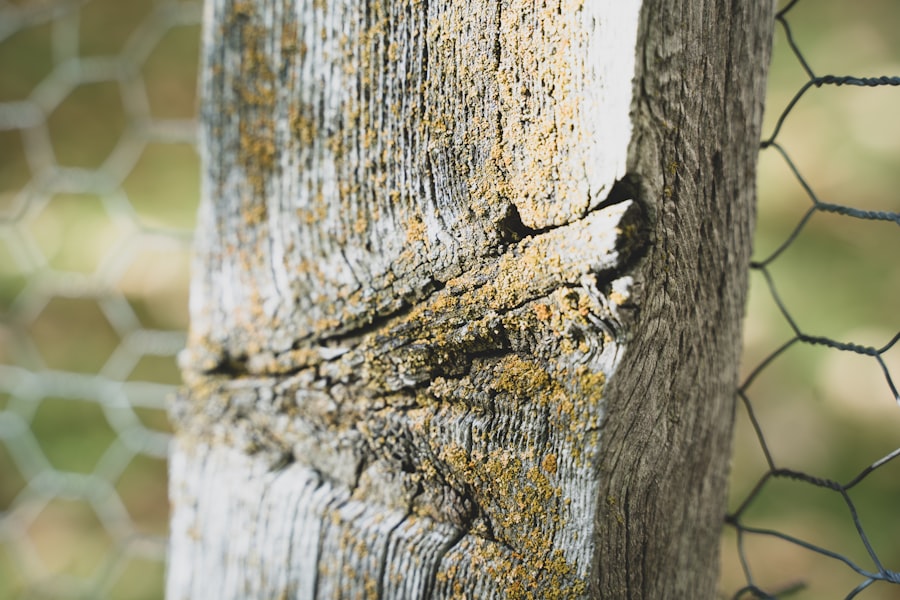
Inspecting for Signs of Damage
By routinely inspecting the area for signs of pecking or scratching, you can promptly address any issues before they escalate. This may involve removing any debris or fallen flowers that may attract chickens, as well as repairing any damage to plants or soil caused by their behavior.
Maintaining a Healthy Flower Bed
In addition to monitoring, maintaining a healthy and vibrant flower bed can help deter chickens from pecking and scratching at the area. This includes regular watering, fertilizing, and pruning to ensure that the flowers remain robust and visually appealing.
Reducing the Likelihood of Damage
By creating an environment that is less susceptible to damage, you can reduce the likelihood of chickens targeting your flower bed.
Seeking Professional Help if Necessary
If despite your best efforts, chickens continue to cause damage to your flower bed, it may be necessary to seek professional help. Consulting with a veterinarian or animal behaviorist can provide valuable insights into understanding and addressing the root cause of the chickens’ behavior. They may be able to offer specialized advice on managing the chickens’ environment and implementing behavioral modification techniques.
In some cases, it may be necessary to consider alternative housing arrangements for the chickens to prevent further damage to your flower bed. This could involve constructing a dedicated chicken coop or run that provides ample space and enrichment activities to satisfy their natural behaviors without encroaching on your garden. Additionally, seeking assistance from professional landscapers or gardeners can help you develop a comprehensive plan for protecting your flower bed from chicken damage.
They may offer tailored solutions such as installing protective barriers or selecting chicken-resistant plants that are less likely to attract their attention. In conclusion, understanding the behavior of chickens is crucial for effectively addressing and preventing damage to flower beds. By implementing physical barriers, natural deterrents, visual deterrents, providing alternative areas for pecking and scratching, regularly monitoring and maintaining the flower bed, and seeking professional help if necessary, you can create a harmonious environment where both your flowers and chickens can thrive.
If you’re looking for more tips on keeping chickens, you might want to check out this article on chicken coop run plans. It offers valuable information on creating a safe and comfortable outdoor space for your chickens, which could help prevent them from wandering into your flower bed.
FAQs
What are some effective ways to keep chickens out of my flower bed?
Some effective ways to keep chickens out of your flower bed include using physical barriers such as fences or chicken wire, using natural deterrents such as citrus peels or coffee grounds, and training your chickens to stay out of the flower bed.
Are there any plants that can help repel chickens from my flower bed?
Yes, there are some plants that can help repel chickens from your flower bed, such as marigolds, lavender, and rosemary. These plants have strong scents that chickens tend to avoid.
Is it safe to use chicken wire or other physical barriers to keep chickens out of my flower bed?
Yes, using chicken wire or other physical barriers to keep chickens out of your flower bed is safe for both the chickens and the plants. Just make sure the barriers are properly installed to prevent any harm to the chickens.
Can I train my chickens to stay out of my flower bed?
Yes, you can train your chickens to stay out of your flower bed by using positive reinforcement, such as treats or praise, when they stay away from the area. Consistency is key when training chickens.
Are there any potential risks to using natural deterrents to keep chickens out of my flower bed?
While natural deterrents such as citrus peels or coffee grounds are generally safe for chickens and plants, it’s important to monitor the chickens’ behavior to ensure they are not ingesting anything harmful. Always research the specific natural deterrent before using it in your garden.
Meet Walter, the feathered-friend fanatic of Florida! Nestled in the sunshine state, Walter struts through life with his feathered companions, clucking his way to happiness. With a coop that’s fancier than a five-star hotel, he’s the Don Juan of the chicken world. When he’s not teaching his hens to do the cha-cha, you’ll find him in a heated debate with his prized rooster, Sir Clucks-a-Lot. Walter’s poultry passion is no yolk; he’s the sunny-side-up guy you never knew you needed in your flock of friends!

